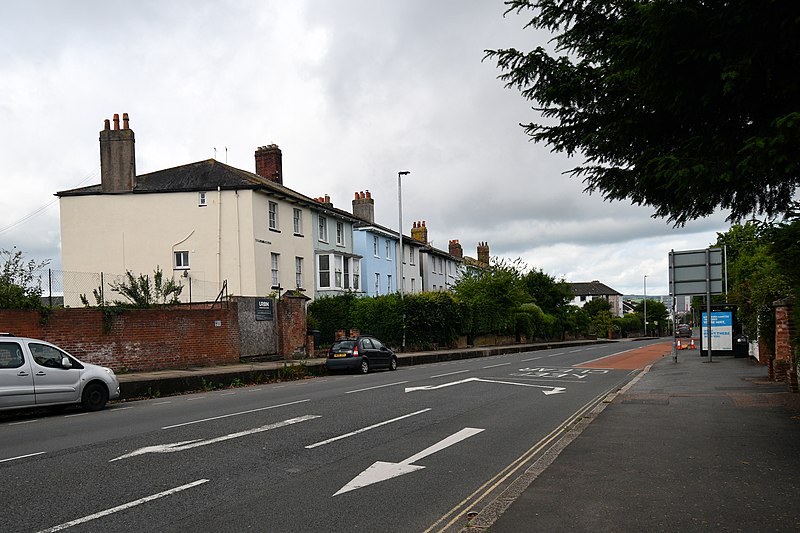
‘Stop the Block’ protests have taken place across Exeter following the introduction of a controversial ‘Low Traffic Neighbourhood’ (LTN) Scheme.
The scheme was implemented to reduce traffic in Heavitree and Whipton – making it safer for pedestrians and cyclists, while reducing air pollution and creating a more attractive environment. Heavitree is in fact the most polluted area in Exeter. Introduced on August 3rd, the road blockages are scheduled to be in place for 18 months.
The LTN has been met with anger by some locals. They have been taking to the streets, cutting down bollards, putting up posters and stickers, and confronting the council. They feel the scheme inconveniences them, lengthening journey times and simply moves traffic to other areas instead of reducing it. They also say that they were not properly consulted about the scheme’s implementation.
What are the advantages of the LTN? Research from Imperial College London suggests LTNs “reduce traffic and air pollution without displacing the problem to nearby streets.” Professor Lorraine Whitmarsh, an environmental psychologist and director of the Centre for Climate Change and Social Transformations (CAST), has also argued that “what many people may not realise is that if the UK is to take its net-zero goals seriously, measures such as LTNs are just the start […]. The sort of things that are going to be most effective to get to net zero will involve quite a significant degree of invasion in people’s lifestyles”
On the contrary, a member of Free Movement Exeter said that “Many feel the DCC (Devon County Council) have not consulted properly on this scheme. Indeed, they claim to have consulted with the Windsor Castle Pub, Blockbuster Video, and the NatWest bank in Heavitree. All three have been closed for at least six years.” Others have complaints about pollution levels, arguing “All the traffic is now on the two main arterial roads sometimes right out to Pinhoe Sainsbury’s, and it’s the same at Heavitree.”
“Many feel the DCC have not consulted properly on this scheme. Indeed, they claim to have consulted with the Windsor Castle Pub, Blockbuster Video, and the NatWest bank in Heavitree. All three have been closed for at least six years.”
Member of Free Movement Exeter
The council has responded, saying in a statement “As a result of this modification the public consultation will be extended and now concludes in May. However, this will not extend the length of the trial beyond the original 18-month window, and previous responses will still be considered. We are also continuing to liaise with all emergency services throughout the trial.”
The introduction of LTNs in Exeter has been politically divisive. This is not the first case of a traffic scheme causing such controversy: earlier this year, the expansion of London’s ULEZ (Ultra Low Emission Zone) played a major role in the Uxbridge by-election. Though the concept of LTNs has been around since ancient Rome, as they increasingly enter the political mainstream, so too do the debates surrounding them.


